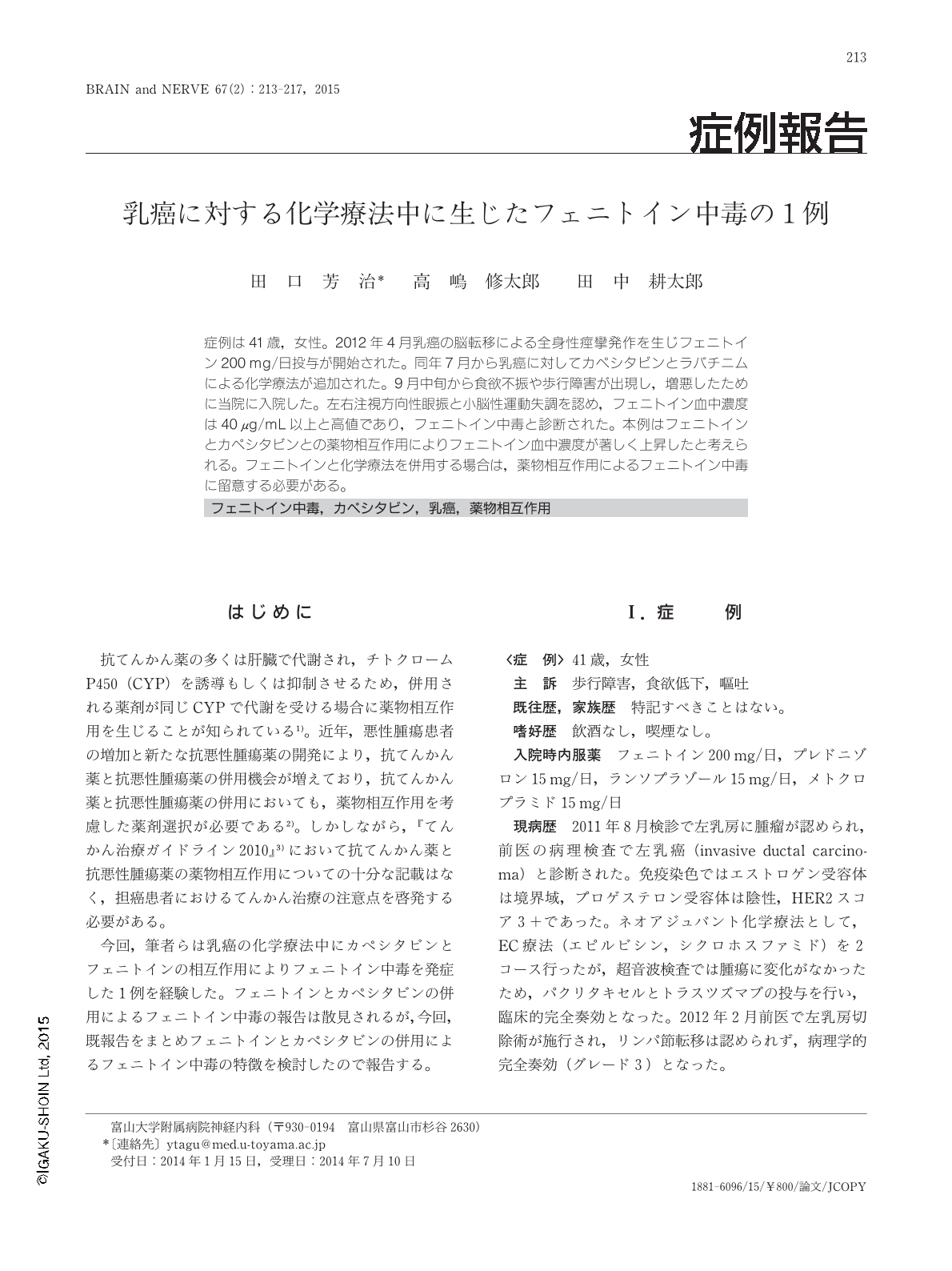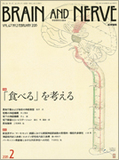Japanese
English
- 有料閲覧
- Abstract 文献概要
- 1ページ目 Look Inside
- 参考文献 Reference
症例は41歳,女性。2012年4月乳癌の脳転移による全身性痙攣発作を生じフェニトイン200mg/日投与が開始された。同年7月から乳癌に対してカペシタビンとラバチニムによる化学療法が追加された。9月中旬から食欲不振や歩行障害が出現し,増悪したために当院に入院した。左右注視方向性眼振と小脳性運動失調を認め,フェニトイン血中濃度は40μg/mL以上と高値であり,フェニトイン中毒と診断された。本例はフェニトインとカペシタビンとの薬物相互作用によりフェニトイン血中濃度が著しく上昇したと考えられる。フェニトインと化学療法を併用する場合は,薬物相互作用によるフェニトイン中毒に留意する必要がある。
Abstract
We report a case of phenytoin intoxication caused by an interaction between phenytoin and capecitabine. A 41-year-old woman was started on phenytoin (200 mg p.o. daily) for convulsive attacks due to breast cancer brain metastasis. Three months later, chemotherapy with 2,400 mg/d capecitabine (3 weeks on and 1 week off) and 1,250 mg/d lapatinib was initiated for the treatment of breast cancer. Approximately 10 weeks after starting chemotherapy, the patient began to complain of nausea, vomiting, and unsteadiness, and she was admitted to our hospital. Since her serum phenytoin level was more than 40 μg/mL, she was diagnosed with phenytoin intoxication. Phenytoin is metabolized in the liver, primarily by the CYP2C9 isozyme, which can be competitively inhibited by capecitabine. Thus, we determined that the patient developed phenytoin intoxication due to the interaction between phenytoin and capecitabine. This indicates the importance of considering the potential drug-drug interactions while prescribing anticancer agents and antiepileptic drugs simultaneously.
(Received January 15, 2014; Accepted July 10, 2014; Published February 1, 2015)

Copyright © 2015, Igaku-Shoin Ltd. All rights reserved.


